#openbsd
So this is where my peeps at!
Hello everyone, my name is Børge and I am happy to get back into the BSD world, though only for personal projects for now.
I was a sysadmin for a small telco a while ago and we used Solaris/SPARC and FreeBSD/i386 for our servers, while I tried my hand at OpenBSD for my personal server. The network was all Cisco at the beginning, with some Juniper equipment for peering at the end but I did not get any experience with those unfortunately. I do have a certificate in SS7 somewhere, the signaling protocol telcos use for voice calls, but have forgotten pretty much all of it.
These days work is "cloud everything", which all seems to be based on Linux-something.
Reminiscing of "the good, old days" I wondered if I could run a BSD server anywhere to tap into my sysadmin background a little, or if I would have to use some Linux distribution.
Searching for BSD hosting providers, I am very happy I discovered @OpenBSDAms which I use for OpenBSD hosting (obviously).
Then I came across @BoxyBSD where I was lucky enough to get a FreeBSD instance.
Last but not least I came across a cheap VPS provider where I could run NetBSD. I don't mention the provider because I'm not sure I can recommend them yet.
I've been on Mastodon a little while, mostly reading as there is so much of interest to find here, though also because I'm quite shy, but hope to maybe post something about what I do now and then.
I really like all the *BSDs, they just do things in a way that seems sensible to me, so being here feels a lot like coming home.
So that's me a little about me. #introduction
How are you?
Between hundreds of kernel knobs, pluggable LSMs, systemd worming into everything, and a userland mashup of dbus, glibc, and 50 other daemons...
is it even realistic to secure a modern Linux box anymore?
Compare that to OpenBSD or a tight FreeBSD jail — where the surface area is minimal and sane by default.
Is “do one thing well” security dead on Linux?
Let’s talk attack surface, patch fatigue, and whether “hardening” just means hoping no one finds the hole.
There are more shells than Bash and I'm curious to see the % of how many people uses wich one of the more or less classic shells. Choose your preferred one.
EuroBSDCon 2025 will be held in Zagreb, Croatia; September 24-28, 2025.
See https://2025.eurobsdcon.org/
Program https://events.eurobsdcon.org/2025/schedule/
Registration https://2025.eurobsdcon.org/registration.html
Now with updated art!
A Self-hosted, BSD-native Gemini Protocol Server Stack – The BSD Cafe Journal https://lobste.rs/s/lenqkc #openbsd #web
https://journal.bsd.cafe/2025/07/22/a-self-hosted-bsd-native-gemini-protocol-server-stack/
Those are my notes on how this  #GoToSocial instance is setup to runs on
#GoToSocial instance is setup to runs on  #OpenBSD using #httpd as an assets caching service and #relayd as a reverse-proxy.
#OpenBSD using #httpd as an assets caching service and #relayd as a reverse-proxy.
If 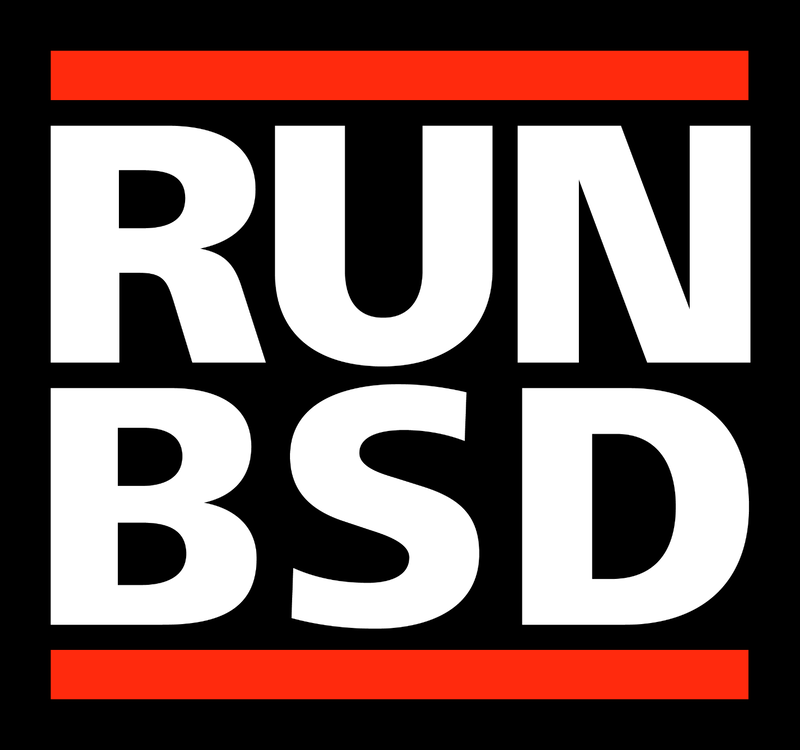 interested, enjoy
interested, enjoy
https://www.tumfatig.net/2025/gotosocial-adventures-run-on-openbsd/#final-thoughts
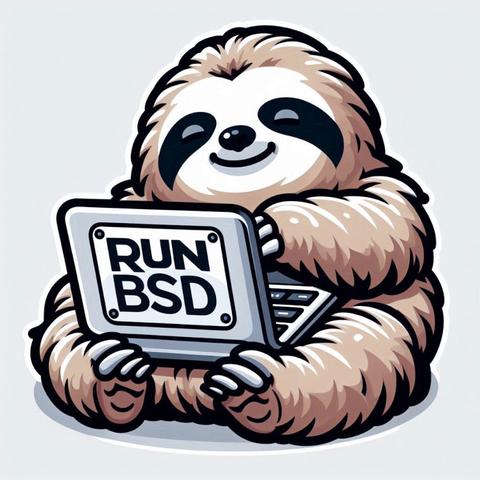
A Self-hosted, BSD-native Gemini Protocol Server Stack - by @rqm@exquisite.social - @rqm@journal.bsd.cafe
For those who are adventurous enough to explore the non-http corners of the Internet, the Gemini protocol is a delightful experience to use. It has been around a number of years, making the biggest bang around the time when discontent with the web’s general demise started to reach current heights (so maybe around 2022).
https://journal.bsd.cafe/2025/07/22/a-self-hosted-bsd-native-gemini-protocol-server-stack/
A Self-hosted, BSD-native Gemini Protocol Server Stack
For those who are adventurous enough to explore the non-http corners of the Internet, the Gemini protocol is a delightful experience to use. It has been around a number of years, making the biggest bang around the time when discontent with the web’s general demise started to reach current heights (so maybe around 2022).
My “capsule”, Vigilia, is self-hosted, and has been since its inception. It used to run on a disused Macbook Pro running Fedora Server, under our TV at home, but since […]
https://journal.bsd.cafe/2025/07/21/a-self-hosted-bsd-native-gemini-protocol-server-stack/
My pull request updating @thfr's #fauxstream for #CBR (constant bitrate) encoding for #twitch #streaming, #screencasting under #OpenBSD is now submitted:
https://github.com/rfht/fauxstream/pull/7
A lot of research & testing went into this one and I'm very happy with the real-world results. Of course, most of the behind-the-scenes effort was actually getting my own stream configuration overhauled & optimized so my dual-core i7 laptop could actually keep up with the encoding so I could test my patches.
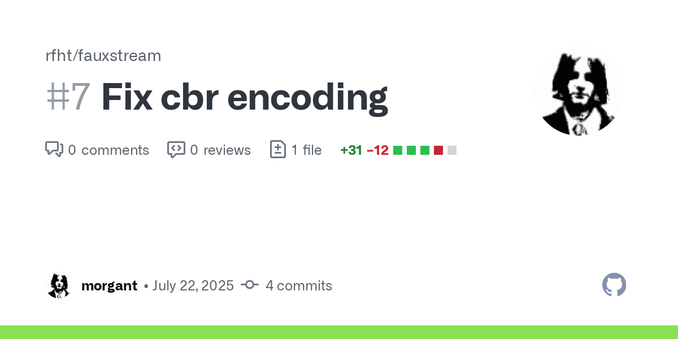
https://ebay.us/m/7llNR0
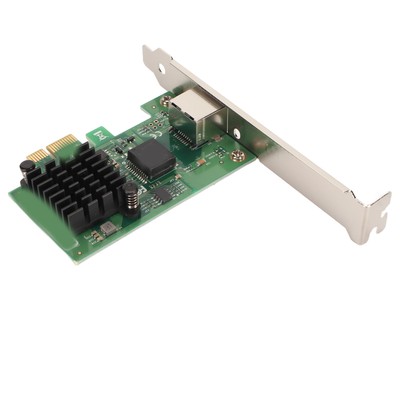
@shmok @FritzAdalis @rqm https://opencrew.tech/ seem to maintain an #OpenBSD port of #Electron:
https://github.com/opencrew-tech
I believe their original intent was to get VScode working under OpenBSD and I see that's included in the repo. In fact, it appears that a #SignalDesktop port is also included.
I haven't tried building any of it though.
@FritzAdalis @shmok To clarify, the #OpenBSD #Electron port was only being maintained for a single game, which then became too frustrating to debug:
https://marc.info/?l=openbsd-ports&m=166127647626903&w=2
If there had been other consumers of Electron, it may have been maintained longer. There were no other consumers because they're too difficult to port & maintain. :(
@FritzAdalis @shmok Signal desktop (https://github.com/signalapp/Signal-Desktop/blob/main/CONTRIBUTING.md) appears to be an Electron app. Electron is very difficult to maintain under #OpenBSD and the port was put in "the attic" two years ago as "it is a waste of time":
https://cvsweb.openbsd.org/ports/devel/electron/
The difficulty stems from the npm/yarn ecosystem and its tight binding to specific versions or packages, often which build & install binaries themselves, but that's not how OpenBSD does things.
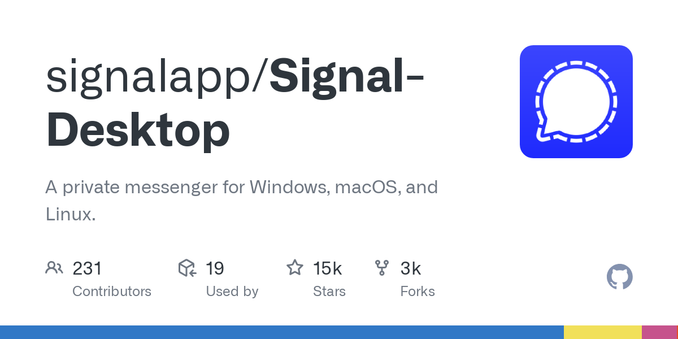
What's the state of Signal desktop app in #OpenBSD? It's not in ports, only Signal protocol and and the desktop version is in FreeBSD ports. Is anyone working on Signal desktop for OpenBSD?



